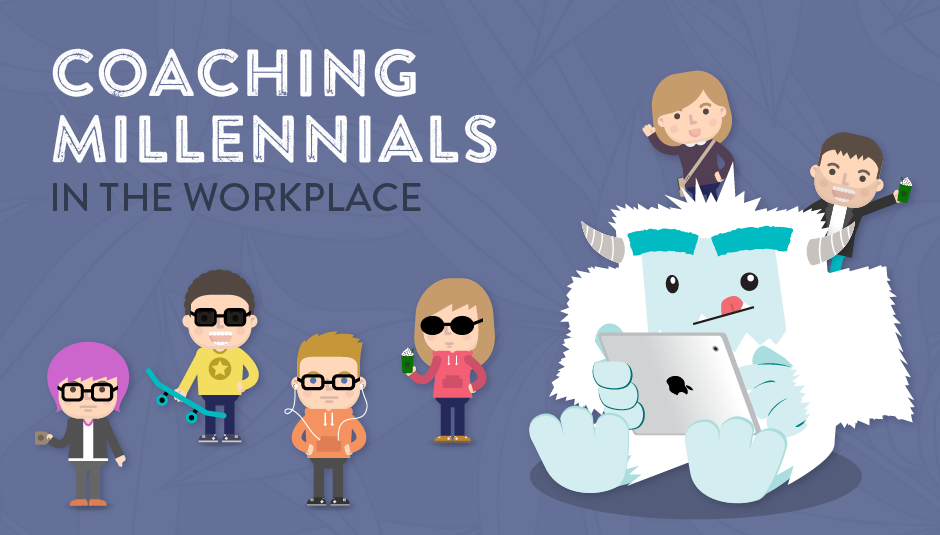Coaching Millennials in the Workplace

With millennials (individuals born from 1981 to 1999) surpassing Generation Xers as the largest generation in the workforce, learning how to bridge generational gaps to build more efficient and productive teams is one of the most difficult challenges in management today.
Making an effort to avoid generalizations and understand subtleties among the generations you employ can help limit employee turnover and ensure that you are coaching your employees in a way that facilitates their very best.
Here are a few strategies to consider as you approach coaching and managing millennials in the workplace.
Be communicative, transparent, and authentic
Millennials are most engaged when their managers provide frequent and consistent communication and feedback. Forty-four percent of millennials who receive regular feedback from their manager report being engaged with their work, whereas only 20 percent of millennials who did not meet regularly with their manager report feeling engaged. Millennials prefer feedback more frequently, as well—most prefer receiving monthly feedback as opposed to quarterly or annually.
Take an active role in their self-development
Millennials are stereotyped as being “noncommittal job-hoppers,” but in fact younger workers are statistically more likely to stay in jobs longer than previous generations did. When millennials do move positions, it is often for a lateral move. Moving laterally between positions has become, per the Washington Post, “one of the few ways to escape lower wages, especially since the rewards that companies have historically offered for employee loyalty—pensions and pay raises—continue to diminish.”
Instilling a sense of loyalty in millennials can be as simple as management expressing a desire to see employees grow and advance in their career. By investing in employee growth on a personal level, as well as on a company-wide level through attractive compensation, benefits, and education and training programs, companies can position themselves to not only groom millennial talent, but retain and reap the long-term benefits of its maturation.
Engage them with the larger context
Surveys have shown that millennials are more engaged with causes and issues than institutions. Demonstrating how a millennial’s work responsibilities affect change beyond a company’s bottom line humanizes their position in the company. Like every generation, millennials long to feel an engagement with their work and a desire for their contributions to be meaningful. But, perhaps more so than previous generations, millennials are less likely to see any one particular company or job as a means to that fulfillment.
While it might take some effort, managing millennials isn’t entirely different from managing any other generation. In Hawaii especially, where talent can be difficult to find, an investment in your employees—regardless of their generation—can be an investment in the long-term health and stability of your business.





